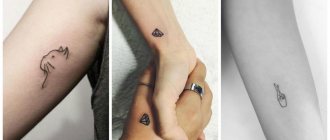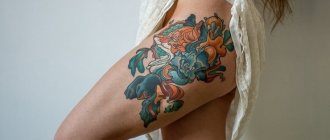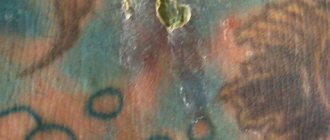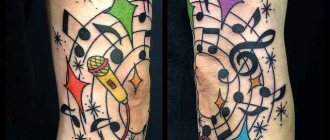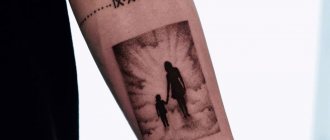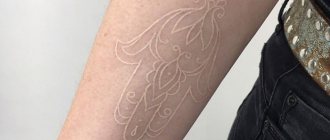Muslims are forbidden to put tattoos on the body. Such a prohibition (haram) exists, and its source, as well as most other rules that Orthodox Muslims follow, is the text of the Koran, reports Cyrillica.
It turns out that according to the Quran, tattooing, as well as plastic surgery, body piercing, cosmetic teeth grinding and even the wearing of wigs, are included in the Islamic list of great sins, because it is considered a rebellion against the Creator and a direct insult to Him.
According to the Quran, everything Allah created is perfect and needs no improvement. Therefore, excessive adornment of one's body, which leads to changes in Allah's created forms, is strictly condemned. On this occasion the Qur'an quotes Satan saying of his followers: "And I will command them in such a way that they will change Allah's creation" (Qur'an, 4:119).
Islamic theologians say that any person who dares to tattoo himself or anyone else is above Allah and will be damned, and the money tattoo artists get for their work is not earned but stolen. It doesn't matter what design is put on the body, even if it's a line from the Koran. The only exception may be a tattoo, which is applied for medical reasons, in order, if necessary, to inform in time about a person's serious illness (e.g., diabetes).
If a tattoo has already been applied, imams strongly recommend getting rid of it by medication or surgery, and leaving it intact only if its removal is associated with a danger to health or threatens the loss of an organ.
And yet the fashion for tattoos is gradually seeping even into Muslim countries. Such a compromise with the strict laws of Sharia are temporary tattoos, which can easily be washed away with oil or water. However, even with their application righteous Muslims need to observe a number of certain conditions. On temporary tattoos it is forbidden to apply protective coatings that make them water resistant and prevent water contact with the skin. As in general in the Muslim culture, as well as with regard to tattoos, images of figures of people and animals are forbidden.
It is also forbidden to depict on the body the slogans or symbols of dubious ideological content, or various sinful images. An orthodox Muslim woman should not show pictures on her body to any man except her legal husband. At the same time, it is possible to apply tattoos to both women and men only outside the avrat zone. For men the area from the navel to the knees is considered to be an avrat zone, for women it extends to almost the entire body, except for the face and hands. If all these conditions are met, then the tattoo is not considered a sin and does not entail a curse.
No true believing Muslim has the right to get a tattoo because it is forbidden in the Quran. Any attempt to change one's appearance in any way is considered an insult to Allah who created man. This is tantamount to dissatisfaction with the creation of the Almighty. And if a person is not happy with Allah's creation, then he is setting himself above Allah and insulting God. This prohibition applies not only to tattoos, but also to hair extensions, piercings and any other body transformations that are now very popular among some youth subcultures. All these modifications of the body are a sin for an orthodox Muslim.
The worst curse awaits both the sinner and the one who made tattoos on his body for such an evil deed. The money the tattoo master gets for such work, according to Shariah, is considered to be illegally obtained (stolen) and therefore cursed.
Punishment for tattooing
In Muslim countries you will not find any tattoo parlors. And it is clear why: a man who decorates the sacred temple of the soul with drawings will be cursed. The money he dares to take for such work is considered stolen. According to Shariah, both the action itself and the payment received for it are cursed, and that is what any normal Muslim fears.
Not only tattoos are taboo in Islam, but also any body modification. Orthodox Muslim women do not have hair extensions. Neither men nor women get piercings. For any follower of Islam, body transformations, which are popular in Europe today, are a monstrous sin.
What does the Koran say about tattoos? Is it haram?
First of all, the answers must of course be sought in the Quran, the most important book for adherents of the Islamic religion. The book itself does not explicitly mention tattoos as we know them today. It is worth saying that there is also no mention of the ancient inscriptions on the body, which were characteristic of the inhabitants of Africa, Saudi Arabia, Iran and part of Pakistan. But at the same time the great Ayatollah Seyyyid Sadiq Hussein Shirazi said: "Tattoos are considered Makruh (undesirable)." Despite this, according to the Koran tattoos can not be considered something sinful, because they simply are not mentioned.
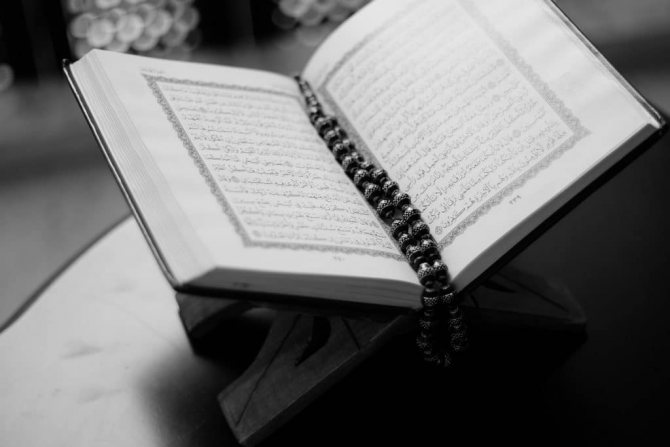
unsplash.com
If the Quran says nothing about the sinfulness of tattoos, why do many followers of Islam still consider it haram? Is there a punishment for it?
Most Muslims base their opinions on the Hadith (oral tradition) of the Prophet Muhammad. Based on these, Muslims consider tattoos a sin because you cannot complete voodoo (ritual ablutions) if you have tattoos. And since you cannot complete such an important ritual and be clean, you can never pray. Voodoo is a very important ritual for Muslims. Because Muslims only pray when their body and mind are in ritual purity. But don't worry that the tattoo will take away your ability to pray, there are other considerations. Because the tattoo is located under the skin and in no way prevents water from entering your body, a permanent tattoo cannot completely prevent voodoo.
Islamic scholars also make the following arguments. A tattoo is a disfigurement of one's body, that is, a mockery of Allah's creation, a kind of deception. In addition, the process is painful and can lead to infection. And of course not without the eternal confrontation of religions - the tattoo is considered an imitation (kafir) of the disbelievers.
What is allowed
Muslim society is considered one of the most conservative in the world. Islam imposes many strict rules and taboos on the lives of its children to keep their souls pure and devoted to Allah.
Yet the fashion for tattoos is gradually taking hold in Muslim countries as well. Permanent tattoos are, as before, strictly forbidden. But temporary drawings can be applied, if certain rules are respected.
First, the images on the body should be made with paints that can be washed away with oil or water. Protective coatings must not be applied. The skin must be in contact with water and cleaned according to the rules. In addition, no slogans, questionable slogans, vulgar images, human or animal figures may be painted on the body.
Be damned.
According to the Qur'an, everything that Allah has created is perfect and requires no improvement. Therefore, excessive adornment of one's body, which leads to changes in the forms created by Allah, is strictly condemned. On this occasion the Qur'an quotes Satan's saying about his followers: "And I will command them in such a way that they will change Allah's creation" (Qur'an, 4:119).
A person who dares to get a tattoo for himself or someone else, puts himself above Allah and will be damned, Islamic theologians say, and the money the tattoo artist gets for his work will be considered not earned, but stolen. It doesn't matter what design is put on the body, even if it's a line from the Koran. The only exception may be a tattoo, which is applied for medical reasons, in order, if necessary, to timely inform about a person's serious illness (e.g., diabetes).
If a tattoo has already been applied, imams strongly recommend getting rid of it medically or surgically, and leaving it intact only if its removal is associated with a danger to health or threatens the loss of an organ.
Avrat
Of particular importance is the place where the tattoo is applied. Mufti Ahmad Sharif al-Naasan (Syria) explains that on the human body there are so-called aurat areas. These are places that are supposed to be protected from prying eyes out of modesty.
In men, the Aurat begins at the navel and ends at the knees. Everything in between is shamefully covered. At the fair sex avrat is practically the whole body. The exceptions are the hands and the face (although in some orthodox communities they also cover it).
It is forbidden to paint anything on the skin located in the area of the avrat, even with easily washed off paints. For this reason, in some Muslim countries, fashionable women paint their hands - from wrist to fingertips - in intricate patterns. They are called mendi. Not only is it beautiful, but it's the only thing that's allowed.
Tattoos
Reference to theological primary sources and commentary:
[1] See, for example: al-Zuhayli W. Al-fiqh al-islami wa adillatuh [Islamic law and its arguments]. In 11 vols. Damascus: al-Fikr, 1997. Т. 1. С. 467.
[2] The word used in the hadith refers to damaging the skin and introducing special dyes, inks, which, after healing the skin, persist for almost the rest of their lives, thus changing the skin of the human body.
[3] See: al-Bukhari M. Sahih al-Bukhari [Code of Hadiths of Imam al-Bukhari]. In 5 vols. Beirut: al-Maktaba al-'asriya, 1997. Т. 4. С. 1881, hadith no. 5931; al-'Askalani A. Fath al-bari bi sharh sahih al-bukhari [Discovery by the Creator (for man in the understanding of the new) through comments on al-Bukhari's hadith corpus]. In 18 vols. Beirut: al-Qutub al-'ilmiyya, 2000. Т. 13. С. 461, 462, hadith No. 5939 and an explanation of it; al-Suyuti J. Al-jami' al-sagyr [The Small Collection]. Beirut: al-Kutub al-'ilmiyya, 1990. С. 446, hadith no. 7272, "sahih"; al-Zuhayli W. al-fiqh al-islami wa adillatuh [Islamic law and its arguments]. In 11 vols. Damascus: al-Fikr, 1997. Т. 1. С. 467; Nuzha al-muttakyn. Sharh riyad as-salihin [The Walk of the Righteous. Commentary on the book "Gardens of the Moral"]. In 2 vols. Beirut: al-Risalya, 2000. Т. 2. С. 347, hadith No. 4/1647 and an explanation of it.
Also see, for example: an-Nawawi Ya. Sahih Muslim bi sharh an-Nawawi. Т. 7. Ч. 14. С. 102-107, hadiths Nos. 115 (2122) -120 (2125) and explanations of them.
[4] "Say to the disbelievers: "If you stop [stopping your blasphemy as well as your persecution of believers and reconsider your life values], then your Lord will forgive you all that was before" (see Holy Qur'an, 8:38).
[5] See for example: Ahmad ibn Hanbal. Musnad [Code of Hadith]. Riyadh: al-Afqyar al-Dawliya, 2002. С. 1269, hadith no. 4/199; Zaghlul M. Mawsu'a atraf al-hadith al-nabawi ash-sharif [Encyclopedia of the Beginnings of Noble Prophetic Sayings]. In 11 vols. Beirut: al-Fikr, 1994. Т. 4. С. 210; al-'Ajluni I. Qashf al-hafa' wa muzil al-ilbas: In 2 parts. Beirut: Al-kutub al-'ilmiyya, 2001. Т. 1. С. 112, hadith No. 363; al-Zuhayli W. Al-fiqh al-islami wa adillatuh. In 11 vols. Т. 1. С. 723, 724; al-Zuhayli W. At-tafsir al-munir [Illuminating tafsir]. In 17 vols. Damascus: al-Fikr, 2003. Т. 5. С. 338, 339.
[6] See: Holy Qur'an, 2:286.
Tags:
Woman Beauty Muslim Tattoos
Did the material benefit you? Share the link with your friends on social media.
- Ayat of the Day
- Hadith of the day
Read more
2 28
Read more
Latest


We are on social networks:
Why tattoos are banned in Islam


Muslims are strongly religious people who follow all the laws of Shariah. One of them states that Allah created man and his creation is magnificent. That is why tattoos are forbidden in Islam. They are equated with a way to change one's appearance, which offends the Almighty, who created man.
When a tattoo is done, it means that the person is dissatisfied with his appearance, which means that he does not like Allah's creation. Disrespectful attitude is forbidden in Islam and is equal to a mortal sin. Man exalts himself above the Almighty by his behavior.
It is considered that Allah would curse everyone who performs any changes on his body, and also the one who does such changes. Money received for work is not accepted as net income, and is considered as stolen funds. That is why you will not find tattoo parlors in Islamic countries.
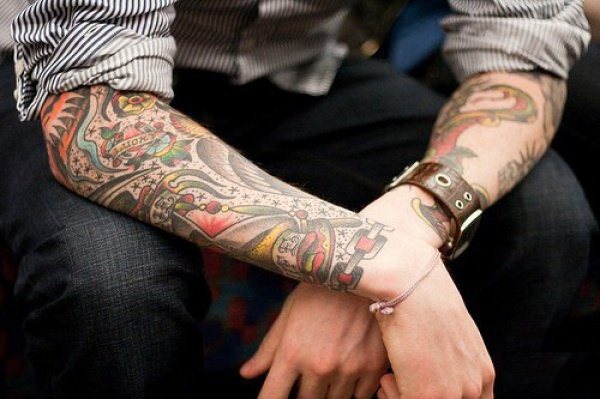

Other cosmetic modifications to the body include hair extensions, eyelash extensions, enlargement of body parts and other transformations. The sin is removed when the tattoo is removed and the person is allowed to namaz. Also, it will not be considered a sin if it was applied to a person against his will or before adulthood, and its removal is life-threatening. Repentance allows a Muslim to remove his sin and be a true believer again.
TASTE: Tattoos for sailors are important and are amulets.
What are the permissible body art and where is it done in Islam?
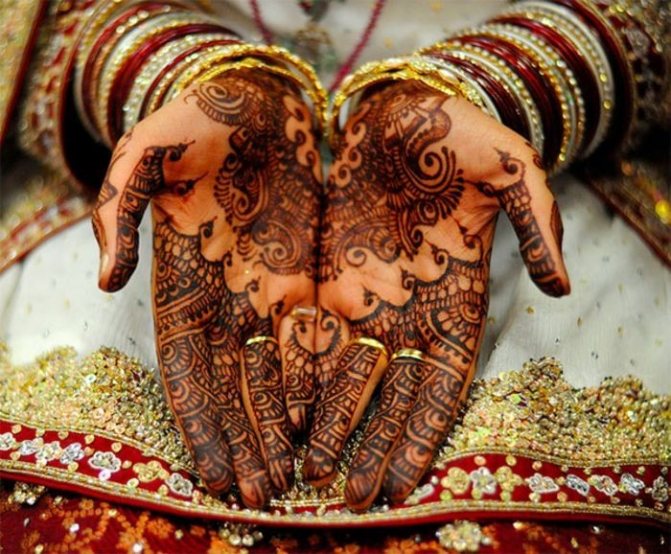

A tattoo is a drawing in which there is a piercing of the skin. The paint combines with the blood, and this is strictly forbidden by the Koran. But there are indulgences, even among such laws for women and men. If you adhere to them, you can allow yourself a tattoo, but for a short time. It should not be longer than 1 year on the body. That's why they started doing henna drawings. It is short-lived and beautiful at the same time.
It is allowed to do tattoos or drawings only on those parts of the body that are not considered under the sign of prohibition, and do not defile the person. There are forbidden areas, which are called aurats, or so-called pied-à-terres. In men it is the lower part of the body from the navel to the heels, and in women - everything except the face and hands.
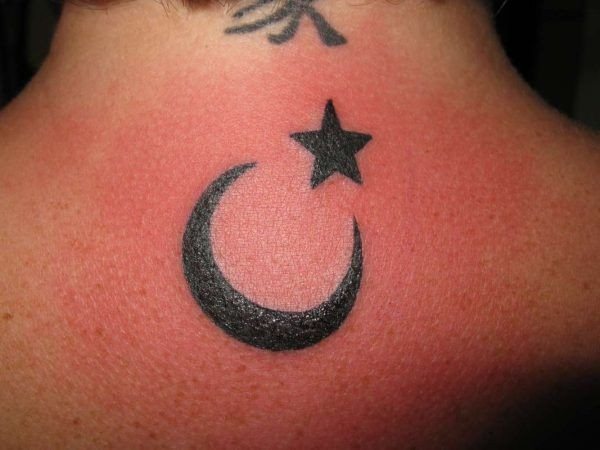

You can make drawings on the accessible parts of the body, but they must be correct:
- one may not have the drawing become a slogan or have other words associated with a false ideology;
- it is not allowed to write the name of the Almighty, or words from the Koran;
- it is not allowed to draw birds or animals;
- the drawing must not resemble the tattoos applied by sinners;
- the drawing must not interfere with the contact of the skin and water;
- the drawing must be washed away with time.
A woman must not apply a drawing that can be seen by another man. There is also a ban on color - unmarried girls cannot use black henna for a drawing.
Why are tattoos undesirable and piercings allowed?
It should be said that these arguments are significantly outdated. After all, if they are followed, then any action on one's body should also be banned. Then what about piercings? Is it also forbidden to dye your hair and trim your beard? And wearing colored lenses? Have you had rhinoplasty or other medical procedures? Is self-tanning or tanning beds also forbidden? Of course, many Islamic scholars believe that women can wear jewelry, which means piercings are allowed. You can also change your hair style and wear colored lenses, as long as it's not permanent. Does this mean that tattoos are possible? It is up to each individual to decide which opinion to adhere to.
One important thing to remember is that tattoos should not contain inappropriate images related to demonic and sexual themes.
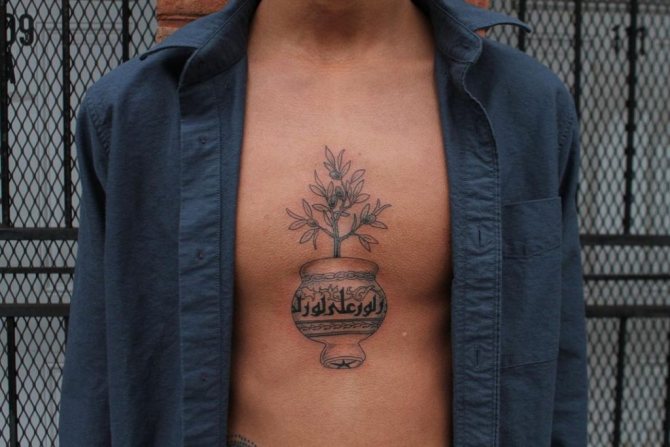

@soft__cake
What about temporary tattoos?
The famous Muslim scholar Tafsir al-Qurtubi argues that if it says something impermanent, such as henna or kayal, which women often use as decoration, preparation for a wedding, then it is not a tattoo as such. Why? Because it is temporary, and does not change Allah's creation, it is not haram. On the other hand, according to Sayyed Ali Sistani, a representative of the Shiite school of thought: "Tattoos are permissible despite whether they are temporary or permanent."
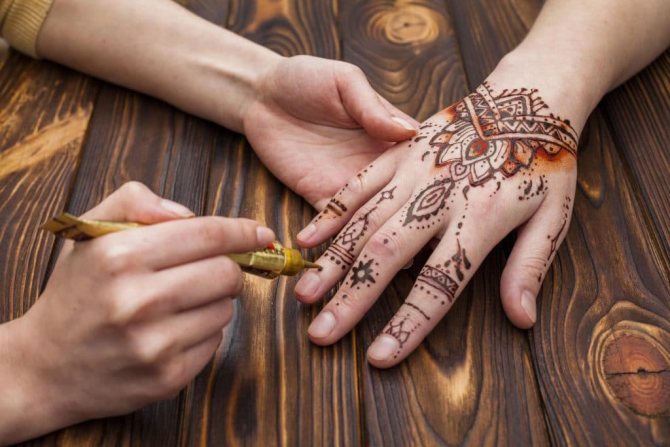

pixabay.com
If you are a Muslim and still hesitate to get a tattoo, because many followers of Islam, especially the older generation consider tattoos a sin. The best solution is temporary tattoos, which are not forbidden, but will help you express yourself.


